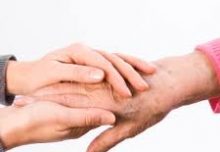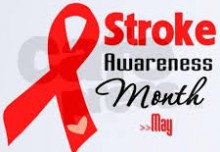 I came across an informative piece in the Washington Post about a week ago, and it brought to light a useful perspective on falls and injuries and recoveries. I’ve talked a bit in earlier posts about preventing falls, especially with your older loved ones. Preventing a fall is arguably the best place to be, but as the more recent article highlights, how we recovery from a fall is also critical. What do you think?
I came across an informative piece in the Washington Post about a week ago, and it brought to light a useful perspective on falls and injuries and recoveries. I’ve talked a bit in earlier posts about preventing falls, especially with your older loved ones. Preventing a fall is arguably the best place to be, but as the more recent article highlights, how we recovery from a fall is also critical. What do you think?
Before the fall. If you have an older loved one, don’t wait for the phone call; here are some simple steps you can take to assess your care receiver’s risk as well as help bolster their safety:
- Assess your loved one’s risk for falling using the CDC’s questionnaire.
- Make certain your loved one gets an annual eye exam, and keep their glasses (if needed) current with their vision.
- If you accompany them to their doctor visit, ask about their feet, posture, leg strength and agility.
- Help assess and address any clutter or other safety issues in your loved one’s “space,” and remember that a lot of this revolves around lighting and ease of access.
This last one has a lot to it. If you would like, we have a home safety checklist that you can use to identify potential trouble spots in your loved one’s house. Just email me at info@creativecaremanagement.com , and I will send you a copy. You may have noticed that I have nearly 600 postings in this blog. Please just type in “home safety” or “fitness” in the search box on the Blog…or any other keywords that are top of mind for you about your loved one’s safety.
After the fall. The author of the recent piece, Elizabeth Heath, quotes a “mental recovery expert” on what to acknowledge post-fall: “Decreased confidence and fear of reinjury are two common side effects of any injury.”
- Appreciate that the mind has to recover from a fall just as the body does…and it may take longer; consider counseling to help with constructive self-talk and “baby steps.”
- Set realistic goals…you don’t need to get back on the proverbial horse right after being thrown; the same is true for falls while walking…start with an easier path.
- Age is an important consideration, so engage a personal trainer for your older loved one so that they can be re-trained in “getting their nimble back;” that’s “trainer talk” for using multiple ways to work the muscles to keep them responsive to surprises on their path.
- Don’t battle through the pain; your older loved one’s body will show remarkable resilience in recovery if they are allowed to give the body the time it takes…which may be a bit more time than it would have decades ago.
Charlotte Bishop is an Aging Life Care Advisor, Geriatric Care Manager and founder of, certified professionals who are geriatric advocates, resources, counselors and friends to older adults and their families in metropolitan Chicago. She also is the co-author of How Do I Know You? A Caregiver’s Lifesaver for Dealing with Dementia.






